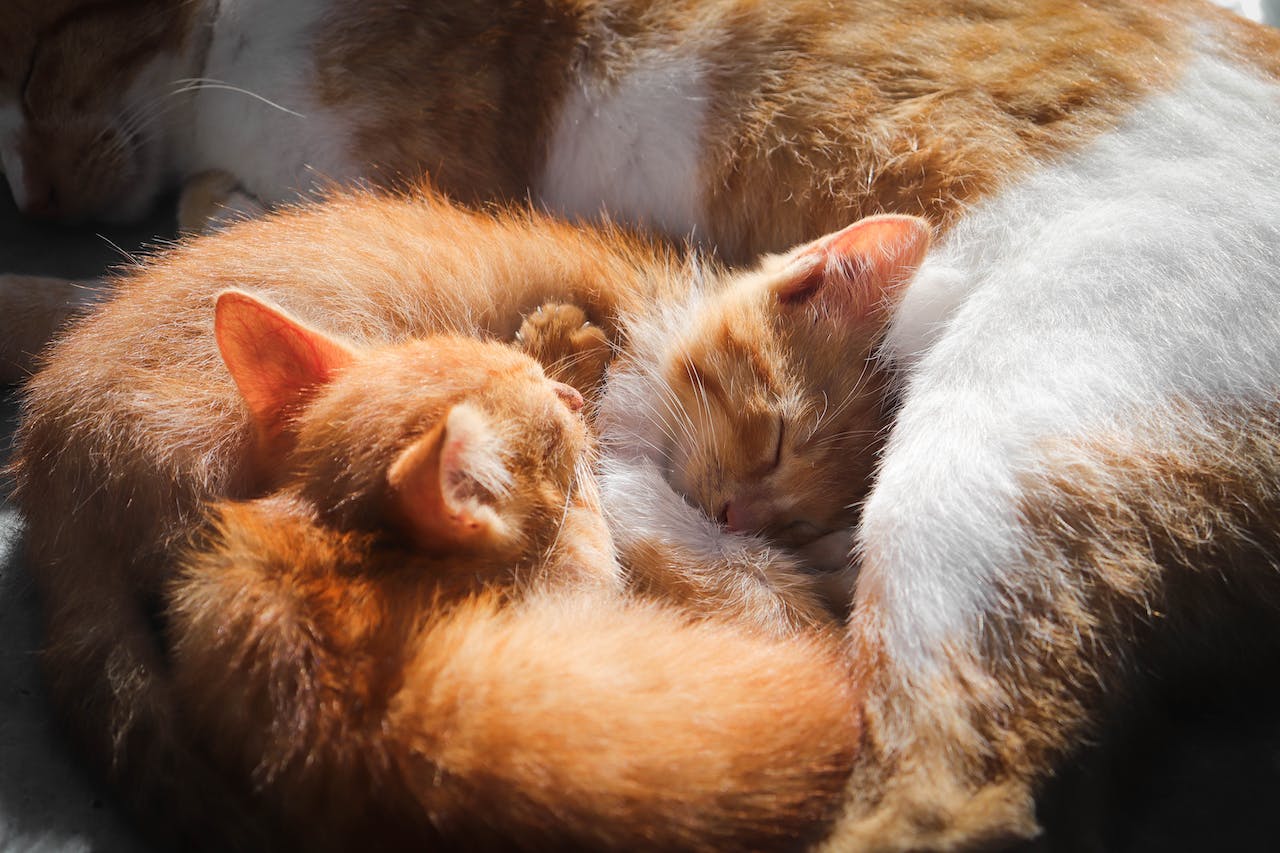Neutering, derived from the Latin neuter ‘of neither sex,’ is the removal of an animal’s reproductive organ, either entirely or in large part. Castration refers to male animals, whereas spaying refers to female animals. Both terms are commonly referred to colloquially as fixing. Castrating male horses is referred to as gelding. A non-neutered animal is sometimes referred to as entire or intact.
The most common method of animal sterilization is neutering. Humane societies, animal shelters, and rescue organizations encourage pet owners to have their pets neutered to prevent unwanted litter from being born, which contributes to the overpopulation of unwanted animals in the rescue system. You may read through a guide to getting your cat neutered for ample information prior to deciding on your pet. Many countries require the sterilization of all adopted cats and dogs. Here are some advantages when you allow neutering of your pet.
1. Neutering eliminates the possibility of pregnancy
Pet overpopulation is a serious problem and allowing your cat to breed contributes to the problem. Although you do not own the female cat and are not responsible for finding homes for the kittens, someone else is. Even if you accept responsibility and decide to keep the kittens, you will incur additional expenses for vaccines, parasite control, toys, and food for multiple pets.
Every state, unfortunately, has thousands of homeless pets. There are simply not enough available homes to house all these animals. Unfortunately, many of these stray animals are euthanized each year. Be a responsible pet owner and have your pets spayed or neutered rather than adding to the growing pet population. You won’t be adding to the already out-of-control pet population this way. If you believe you will want more pets, consider adopting from a rescue shelter rather than having your pet give birth.
2. Neutering increases the life expectancy of pets
Jessica Hoffman and Steven Austad, Ph.D., along with collaborators, conducted an extensive analysis of thousands of dog births and deaths in this study to compare the effects of gender on aging and longevity in canines. According to the findings, gender has no effect on the cause of death and only a minor effect on longevity; males live slightly longer. Most of the differences in canine longevity appear to be the result of spaying and neutering.
According to Austad and Hoffman, spayed and neutered pets, live longer, are healthier, and live happier because they have fewer behavioral issues and are less susceptible to infections, degenerative diseases, and traumatic/violent causes of death. Female dogs who are spayed before their first estrogen cycle are also protected from mammary cancer. Though the overall risks of spaying and neutering are considered minor, they do exist. One of the disadvantages is the increased risk of autoimmune diseases and cancer. Researchers advise waiting until large dogs have finished growing before neutering to reduce the risk of osteosarcoma, a bone cancer that is common in large dogs.
3. Neutering results in a cleaner, calmer pet
Another advantage of neutering your cat is that it can lead to a calmer, and sometimes cleaner, home. Without the need to mate, your cat may be quieter and less prone to cat calls and the constant need to find a mate. The neutered cat has lost the desire to seek out and serenade females. If she is a female, then you don’t need to take care of your cat when they are in heat because writhing, screeches, or howls to attract a mate will not be needed. The male is no longer stressed by the need to mark his territory by urinating throughout the house and yard. Neutered cats are also less difficult to socialize with. They are gentler and more affectionate. Neutered males tend to roam less and are less likely to get into fights with other animals.
4. Lowers risk of contracting infections
Sterilizing him makes him a better pet by reducing his desire to roam and the risk of contracting diseases or being injured while roaming. According to surveys, up to 85% of dogs hit by cars survive. Male cats living outside in their entirety have been shown to live for less than two years on average. Feline Immunodeficiency Syndrome is transmitted through bites, and intact cats fight far more than altered cats.
Keep in mind that other diseases can occur because of natural cat behavior when they mate. According to the VCA Hospitals, feline leukemia and feline AIDS are two diseases spread by the bites of infected cats to other cats these diseases are different from human AIDS and leukemia because they are not transmissible from cats to humans. Reduce your cat’s desire to fight for mates and territory, and she will be less likely to contract these incurable diseases from other cats.
5. If your pet is neutered, he or she will be healthier
Another advantage of neutering your cat is that neutered cats have fewer health issues. The testicles are removed during neutering. Testicular cancer is no longer a concern in the absence of these organs, and the risk of prostate problems is reduced. Testicular implants are available for people who want to sterilize their cat but do not want to change his appearance.
6. Better physical changes
The odor of male urine is particularly strong and pungent. Castration causes a more normal odor in the urine. Many owners claim that after neutering their intact males, they become much cleaner, less odorous, and better self-groomers. Fighting-related abscess formation is much less common, and some secondary sexual characteristics, such as overactive tail glands in the condition known as “stud tail,” can be significantly improved.
7. You will save money
If you’re concerned about the cost of spaying or neutering your pet, consider the alternative: high vet bills in the future. If your female cat becomes pregnant, she will require more frequent check-ups and monitoring. After that, you’ll oversee all her children. The vet bills and food required to feed a litter of kittens will quickly add up.
Even if your pet does not become pregnant, you may face significant vet bills in the future. Because the risk of cancer is higher in unaltered male and female cats, you’re not only gambling with your money, but also with your pet’s life.
Is there any negative impact on health or behavior from neutering?
There are numerous myths about how neutering affects health and behavior. Neutered males are no more likely to become overweight or lazy if they follow a healthy diet and get enough exercise. With less roaming, fighting, and mating activity, calorie intake may need to be reduced, and alternative forms of play and activity may need to be provided. Hunting and other behaviors that developed independently of hormonal influences are unaffected. Regardless of the age at which it is performed, neutering has no effect on physical development overall height and weight, or urethral size. Although neutering before puberty appears to have similar effects to neutering after puberty, every effort should be made to neuter before puberty before the cat develops sexual maturity problems, experiences, and habits.

